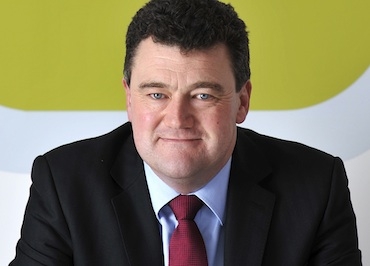A move by the Government designed to boost savers' pension funds by cutting down on 'excessive' charges may hit companies' incomes by £1bn – five times more than previously suggested.
Royal London has said the pension charge cap of 0.75% a year from next April will mean firms' revenues reduce by far more than the by £200m over a 10 year period stated by Pensions Minister Steve Webb.
The pensions firm labelled Mr Webb's figures as "a gross underestimate" and argued that the policy will "distort the market".
Operating profits at Royal London fell by 45% during the first half of 2014 and it said this had been "adversely impacted by a £61m assumption change arising from the introduction of charge capping and other regulatory changes on defined contribution group pension schemes".
Phil Loney, group chief executive of Royal London, said: "We estimate that the total reduction in long term insurer income may well reach £1bn.
"This seems to me to be an unacceptable margin for error in the government's understanding of the impact of its actions and the size of the impact is driving many insurers to introduce employer fee arrangements to mitigate against the impact of further reductions in the price cap.
"I hope that present and future governments will think carefully about these consequences before lowering the cap further, not least because the impact of price capping is likely to fall increasingly on the hard pressed SME sector."
He added: "We are beginning to see the first signs that this headline-grabbing policy will have precisely the opposite consequence to that which is intended." Commentators have suggested there could be a knock on effect on consumers and employers with these costs passed on."
{desktop}{/desktop}{mobile}{/mobile}
Tom McPhail, head of pensions at research Hargreaves Lansdown, said: "Employers may have to pay more in the way of fees to help cover the cost of running the schemes.
"This seems the most likely outcome. In turn they will either pass these costs on to shareholders in the form of lower dividends or on to employees in the form of lower wages. It is hard to see how anyone wins from this."
The Department for Work and Pensions has said the policy is about ensuring workers having access to good quality pension schemes and are protected from "excessively high charges" - particularly where automatic enrolment means they have not made an active decision on their scheme.

